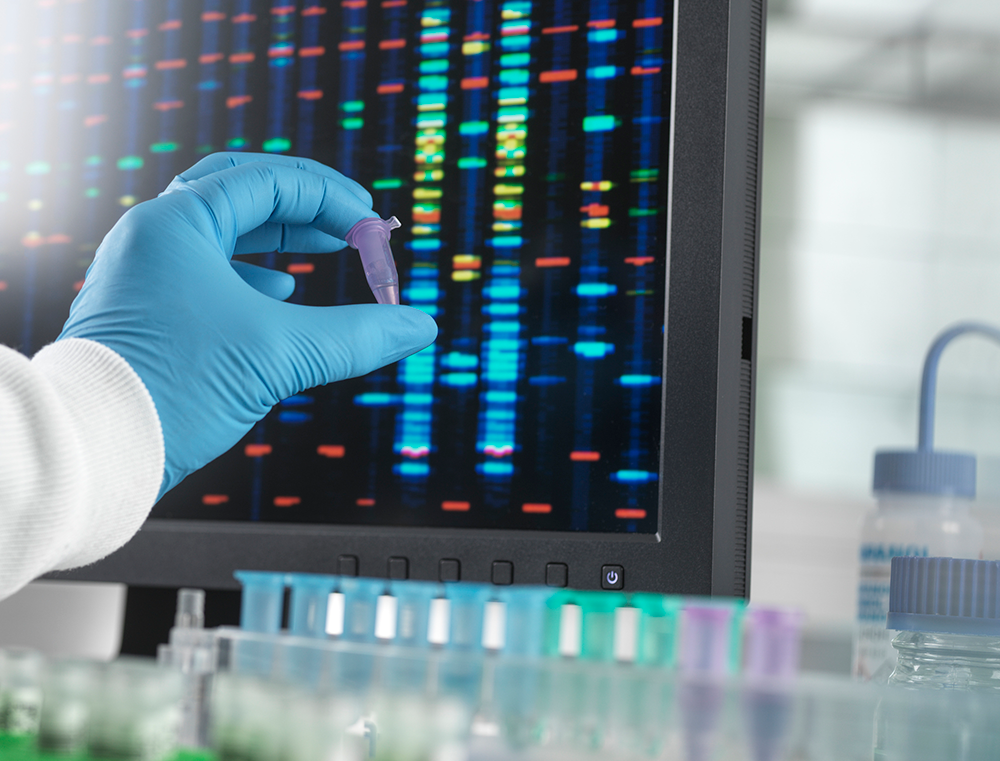Chemotherapy is often necessary for many cancer patients because of its effectiveness at killing fast-growing cancer cells throughout the body. Unfortunately, chemotherapy also kills fast-growing healthy cells, putting cancer patients at risk of developing both short- and long-term side effects.
Typically, it’s the short-term side effects most people are familiar with. These can include:
- Nausea
- Vomiting
- Fatigue
- Hair loss
- Weight loss due to lack of appetite
- Skin changes, such as dryness, flushing, and darkening
- Mouth sores and/or dry mouth
- Bitter and metallic changes to the sense of taste
While these short-term side effects will go away after treatment, there are times when other side effects stick around much longer. Some of the following long-term side effects may be experienced immediately after chemo, while others might not become apparent until months or even years have passed since the end of treatment.
Mental Fogginess
Cognitive dysfunction, also referred to as “chemo brain,” is a common symptom during chemotherapy treatment. For some patients, though, it can continue years after treatment ends. Symptoms are usually mild and include memory problems, trouble concentrating, and difficulty multitasking. Making lists of things you need to do or want to remember, jotting your schedule and important dates on a calendar, and using a pill organizer to keep track of your medications can be effective ways to help you manage the effect that chemo brain has on your daily life.
Bone & Joint Problems
Chemotherapy drugs may cause thinning of the bones, called osteoporosis, especially in cancer survivors who are not physically active. To reduce your risk of developing it, exercise regularly, avoid tobacco and alcohol, and eat foods rich in calcium and vitamin D, such as dairy products, fatty fish, orange juice, and egg yolks.
Early Menopause
Chemotherapy, as well as other cancer treatments, are linked to menopausal symptoms in some women. For this reason, pre-menopausal women who had chemo should have their blood tested regularly to measure their hormone levels. In women under the age of 40, menstrual periods may return after treatment ends. However, these women may still go through menopause earlier than normal. Women over 40 are less likely to have their menstrual periods return.
Dental Problems
Chemotherapy is also known to cause damage to tooth enamel, which could make some patients more prone to dental problems, such as dry mouth and gum disease. Weakened tooth enamel can also increase the risk of cavities. Survivors should get regular dental checkups, so a dentist can detect and repair dental problems before they become advanced.
Weight Gain
A common side effect of chemotherapy is weight gain, especially in women whose chemo triggered early menopause. On average, 5 to 15 pounds may be gained. This is primarily due to chemotherapy drugs that cause changes to the metabolism, combined with being less active during cancer treatment. If you’re struggling with post-treatment weight gain, try to incorporate exercise into your routine, eat three meals per day, and avoid snacking between those meals. Also, aim for a well-rounded diet rich in vegetables, fresh fruits, lean proteins, and healthy fats like avocados, nuts, and olives.
Heart Problems
Some patients may develop long-term heart conditions due to chemotherapy. Conditions may include congestive heart failure, heart disease, or hypertension (high blood pressure). Cancer survivors who are at increased risk of long-term heart problems caused by chemotherapy include those who:
- Were aged 65+ at the time of cancer treatment
- Received very high doses of chemo
- Had treatment for Hodgkin lymphoma as a child
- Were given certain medications, including Herceptin, Ogivri, Adriamycin, or Doxil
Symptoms of heart disease include shortness of breath, dizziness, swollen hands or feet, arrhythmia, chest pain, or lightheadedness. These symptoms should never go ignored, especially if you’re a survivor with any of the risk factors for chemo-induced heart problems. If you fall into this category, and experience any of these symptoms, schedule an appointment with a cardiologist right away. It’s also a good idea to talk to your doctor about having an echocardiogram or another test to check for heart damage. Echocardiograms and similar tests can show immediate problems, such as heart attack. They’re also useful for tracking changes to the heart over time. Your increased risk for heart problems should be brought to the attention of all doctors you see. Having this information will help them avoid prescribing medications that could make heart problems worse.
Leukemia
Chemotherapy may damage bone marrow stem cells, which can increase your risk of developing blood cancers like leukemia or myelodysplasia. Fortunately, leukemia as a side effect of chemotherapy is rare. Particular chemo drugs that have been linked to leukemia include cyclophosphamide, doxorubicin, and epirubicin. If your cancer treatment regimen included those drugs, be aware of the symptoms of leukemia, such as swollen lymph nodes, bone pain, night sweats, weakness, fatigue, and rapid weight loss. Talk with your oncologist if you experience any of these symptoms.
While you can expect to experience at least some of these long-term side effects of chemo, you shouldn’t have to have trouble managing them. If you do, make sure to talk to a member of your Minnesota Oncology cancer care team. You should also let your cancer team know if you experience any unusual symptoms not mentioned here as they could also be related to the chemo you received during treatment.




